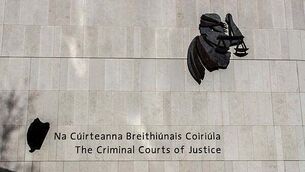Two thirds of people believe corruption is widespread in Ireland- report

Seán McCárthaigh
Almost two-thirds of Irish people believe corruption is widespread within the country, with more than one in five believing they are personally affected by the problem in their daily life, according to new EU-wide research published by the European Commission.
The Eurobarometer poll found 63 per cent of people in Ireland think the problem of corruption is widespread within the Republic, with 41 per cent believing the problem had become worse in the past three years.
However, the results suggest Ireland is far from the most corrupt member state within the EU with the results showing citizens ranging from 21 per cent in Finland to 97 per cent in Greece believing corruption is widespread in their country.
The EU average was 69 per cent.
At the same time, the proportion of Irish people who think corruption is widespread has increased by six percentage points from 57 per cent since a similar survey was conducted just 12 months earlier.
The survey, which involved over 26,300 people across the 27 EU member states including over 1,000 in the Republic, examined public attitudes to corruption.
It also revealed that 23 per cent of Irish respondents felt they were personally affected by corruption in their daily life – up from 18 per cent in 2024 – but still below the EU average of 30 per cent.
Irish people also had some of the strongest views among Europeans against corruption with 73 per cent claiming it is unacceptable – the 5th highest ranking and above the EU average of 64 per cent.
They claimed corruption was most likely to be found in political parties (41 per cent) followed by politicians at national, regional or local level (36 per cent) and planning officials (33 per cent).
Almost 6 in 10 Irish people (58 per cent) believe bribery or the use of connections is the common way for companies to receive public contracts.
In addition, 59 per cent feel corruption is part of the business culture in Ireland – up from 54 per cent in 2024 – while 66 per cent believe favouritism and corruption hamper business competition.
Similarly, 63 per cent feel high-level corruption cases are not pursued sufficiently in the Republic, while just 32 per cent believe Government efforts to combat corruption are effective.
However, the Eurobarometer poll also reveals that Irish citizens are among the least likely Europeans to have direct experience of corruption or know someone who has taken bribes.
Despite the high level of concern about corruption in Ireland, just three per cent of respondents said they knew someone who takes or has taken bribes – the joint lowest level with Poland and below the EU average of nine per cent.
Also just three per cent said they had experienced or witnessed some case of corruption within the previous 12 months – the joint second lowest rate with Denmark, after Portugal.
The European Commission said EU citizens largely perceive corruption to be widespread in political and administrative institutions, although less frequently associated with frontline services while direct encounters remain “relatively uncommon.”
Many also remain sceptical about the effectiveness of national anti-corruptions efforts.
The report observed that public attitudes towards corruption are shaped by personal exposure to the problem.
.




